0 Comments
I have something to admit....I've written plays.
And no, it wasn't just youthful experimentation, I've written a lot of plays, 57 in fact. Part of writing plays is going to theaters and participating in play reading nights when actors sit on stage, or at the front of the room, and read through someone's new script. Sometimes they were great and sometimes....well, they weren't. But, the thing that really bugged me is when someone would write this killer speech for a character that should have ended the scene, or act, or the whole show and then had kept on writing. They had created a "mic drop" moment and then had their character stay on the stage, and it ruined all the good work they had done. If you're a business person creating a presentation, or a Sales professional up in front of a room of prospects, and you have told a brilliant story, or made a closing point and still have a couple slides left in your deck, let me give you some advice: DON"T SHOW THE SLIDES. If you've proven your point, you have finished, even if you might have more information, let it have the day off. Watch for the mic drop moments. In fact, search them out. Study the faces in the room because it might change from meeting to meeting. If you've hit the big note in your song there is no reason to sing more. It will just diminish the impact of your moment. There is a great old song by my favorite folk singer Ellis Paul called "Live in the Now". While he's talking about being in the moment and not getting caught up in the future and past, it's a great lesson for storytellers because stories have to live in the now as well.
Stories are by their nature mostly about the past, but the power of a great story is making it seem as it it is happening in real-time as the teller communicates it. The storyteller has to quickly transition from setting up a story of months or years ago to something that seems to be spontaneously happening in the moment. That's why film makers use flashbacks. It turns the past into the present and has the audience living the moment with the storyteller to get the maximum emotional impact, and emotional impact is what storytelling is all about. So, when you're telling a story you need to quickly transition from past tense to present. Such as... "Courtney was trying to solve a problem in her business right before a meeting with her Board of Directors a couple of years ago. She's thinking that the issue is with how she is handling her reporting. She decides that she needs to make a change and goes straight to her CEO and says..." This intentional shift might have gotten you in trouble writing a paper in high school because is could be viewed as inconsistent, but it's really the tool of a great storyteller to increase the emotional impact with the audience. The audience isn't hearing an old story, they are living through the event as it happens, and that keeps people's attention regardless of the story you're telling. I'm teaching a class next week and the client already has spent time developing their messaging and has a standard presentation deck done. It's got some great information in it and now it's my job to help the team get the most out of it and deliver that message well. But, the deck is just the beginning.
It's just like a hamburger.....just stay with me for a second. A great burger isn't just a 80/20 lean meat to fat ratio. It's not even when an accomplished and knowledgeable restaurant chef or grill master adds special ingredients to the patty. It's when the burger is fully assembled with a bun, condiments, cheese, veggies and dare I say it...bacon. It's adding all those elements which make it delicious and memorable. But, it's also knowing the customer. Do you have vegetarians, vegans, gluten or lactose sensitive guests? That changes your recipe if you want people to be happy. Sales presentations are just like that too. The deck is the foundation like the patty. It's got to be good and fit the audience or else it's a non-starter. Then the talented chef customizes the talk with the stories that are the bun. The tone of voice and effectiveness in speaking in a compelling manner is the cheese. The body language and gestures that will compel the audience to listen to you is the bacon. If done right, you can create something that the audience wants to consume and tell their friends and colleagues about. Putting is all together well makes people connect, listen and remember. So, you have to ask yourself...how good are you at putting together a great burger? I once worked for a very wise man and while he taught me a lot, one of the things I remember most clearly is that the order of things matter.
I've passed that along to a lot of people, but I want to add a bit more to it. Timing matters because matching a statement, message or piece of information to a particular moment in time adds resonance and power. That's while something that happens later in a game has so much drama. It's the action plus the moment that makes a hit or a diving catch seem so huge. Knowing when to say something or even walk across a room can make a huge difference. I tell clients to move with purpose. Walking from one side of a stage to another, or picking up a piece of paper and tearing it in half can turn a talk from boring to high drama with great impact that makes it memorable. Imagine staring a meeting talking about how a lot of companies are trying to slip by some new law or regulation because they don't think they'll be fined. As you say that you put two dice down on the table. You leave them there for the whole meeting, and at the end you pick them up and ask if they are willing to leave the future of their business to chance. Intrigue to start the meeting and impact at the end. Timing matters. I don't play a lot of poker, but when I do there is one thing that I see all the time. No one cares about the ante. That chip you have just thrown on the table to allow you into that hand. It's gone. It doesn't matter.
But when I see people message and present in sales situations that's often what they focus on most. Everyone throws in the ante. It's the same amount from everyone, and the game doesn't get interesting until players see their hand and start wagering for real. The point is that no one focuses on something that is the same for everyone, they focus on what makes someone, or something special. If you spend all your time talking about what the same between you and the competition you end up looking like the competition. Instead put your bet and time on your own strategy and what makes you different. People never remember the ante, they remember the player that used a different strategy to win the hand. I’ve seen a lot of keynote speakers. The best ones all have something in common. They have a great story. I’ve seen professional athletes and people that have overcome tragedy in life. I’ve seen adventure racers and leading executives from companies that have changed the world. I’ve seen every type of leader, inspirational speaker and winner, and you might think…that’s not me. You haven’t had to make a life or death decision, or led a team or company to greatness. You’re not a keynote speaker.
But you could be. Life lessons aren’t just learned when you’re trapped on a ledge in the Andes mountains. You don’t need to have a billion dollar company to make important decisions. Deciding whether to change your children’s school by moving, or whether you’re going to leap from your current career to another can be a major story because the people in your audience can learn from it. That’s the key, can your story teach a lesson that will resonate with an audience, and can you tell it in a way that engages them? How do you build your keynote story?
Everyone has experiences that have taught lessons, and your life has taught you many that can be helpful to others. The key is to find a theme that is both educational and interesting and hone your skills to create and tell that story. I was struck by this comment by Barack Obama. He was discussing how working with people in his early years in Chicago helped him learn lessons about people that were just as valid on an international stage. People are people, and that doesn't change just because a person is a president, prime minister, or executive.
The same goes for storytelling. All people react to stories regardless of their jobs. It's just wired into us as human beings. Some business people don't want to tell stories and stick to their features and functions talk, or stats about how much money or time their solutions save. The say, "I can't tell stories, these are senior people at a major corporation." Yes, they are, but the key part of that sentence is the word "people". Just because a person has an important job doesn't mean they stop being a person. All people are hardwired to pay attention to and remember stories. Who they are might change which story you choose and how you tell it, but you must still use the most powerful tool you have to communicate...storytelling. 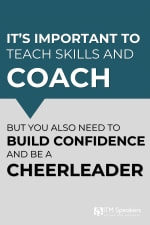 I learn a lot from teaching classes, and sometimes I learn more than I teach. I was teaching a class where the attendees were struggling with the material. So, I jumped in and tried everything I could to help. I gave them feedback on their exercises. I suggested alternative ways of looking at the techniques. I gave them targeted and exacting critiques to show them where they were veering from the correct path. I put everything I had into helping them master the material. And...I was doing it all wrong. They didn't need more knowledge. They needed confidence that what they were picking up could be used, and that they could be effective with it. Granted they weren't grasping everything, but they needed to be confident they were on the on-ramp to something effective. Some groups react really well to coaching, but some need more cheer-leading and confidence building. What I learned in that class was to be more aware of when to switch over. Maybe the first day is coaching and the second day is all about building confidence? Maybe it's a little of both in every interaction? The key is, that a good teacher, leader, or speaker has to be both, and be aware of what the person, class, or auditorium needs. 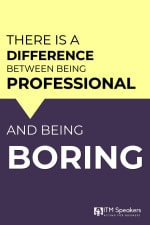 Haven't you done this? You have a crazy idea for a meeting or sales call, and get really excited but then think..."I can't do that. People will think I'm unprofessional." Instead you do something else, something more standard, and make no impression and your message is ignored and forgotten. There is a difference between being professional and just plain boring. It's the start of a new year and I challenge you to bring more of your creativity to the game of communication. I've worked in B2B companies for decades and I've been told that I had to be more "corporate". Early in my career I was a sales engineer doing demos for prospects, and I would break into impressions during meetings. My VP told me that it in big meetings I should cut out the fun and stick to business. And you know something, he was wrong. I didn't realize it at the time, but bringing some personality and fun into meetings gave me the opportunity to tell stories and made my demos memorable. I was talking to people not a corporation, and regardless of the size of the enterprise in which those people worked I still needed to connect at a human level. Never be afraid of adding creativity. Could it backfire? Sure, but don't let that stop you from doing something different. I've found that the quirky sales person that knows his or her stuff is the one that is remembered, and being remembered is the first step in closing the deal. |
Categories
All
Robert MattsonRobert is a speaker coach, actor, director, author, speaker, executive and overall marketing guy. He writes about all aspects of presenting and connecting with audiences. Archives
April 2019
|

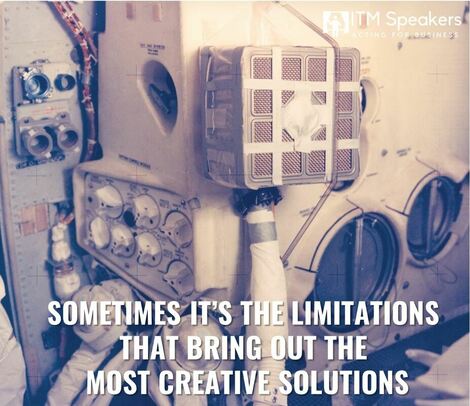
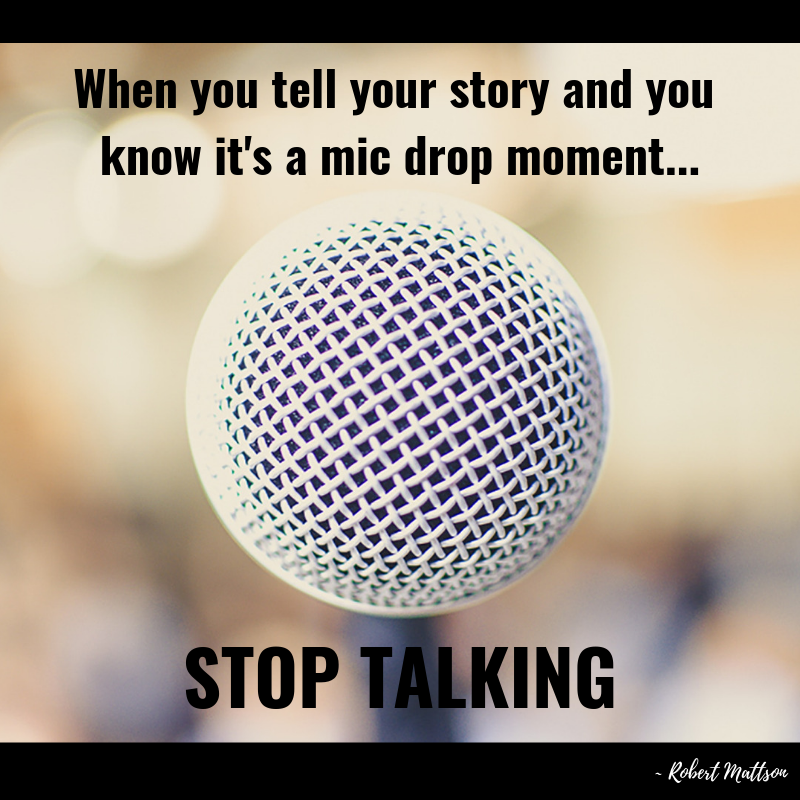
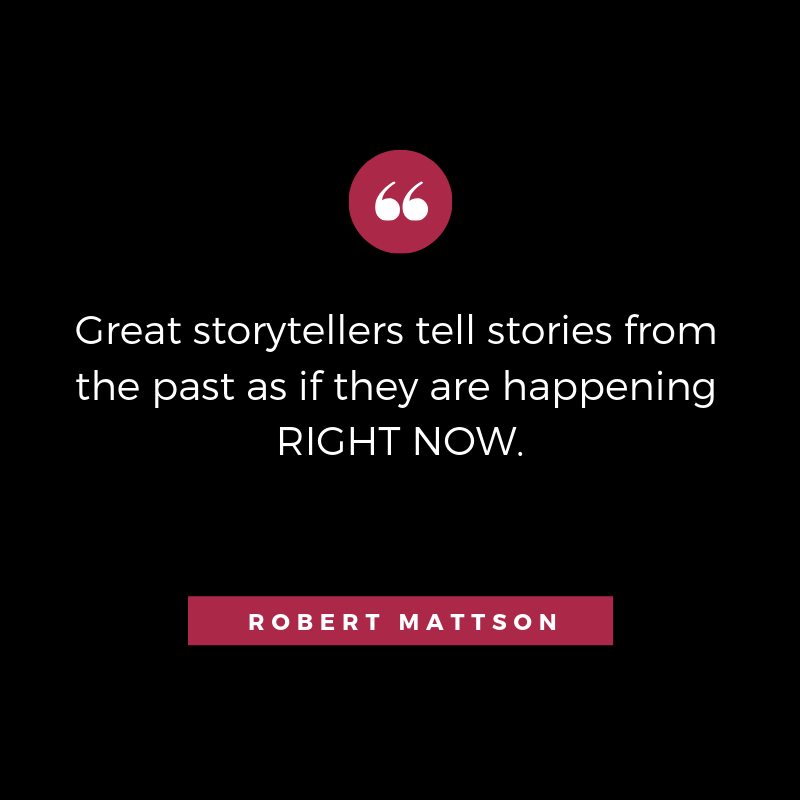
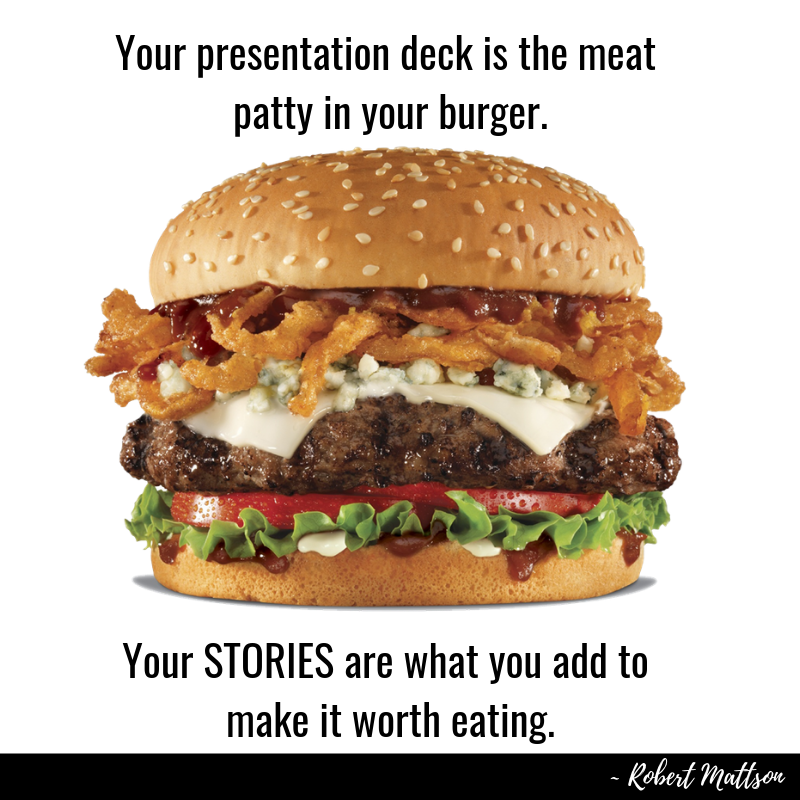
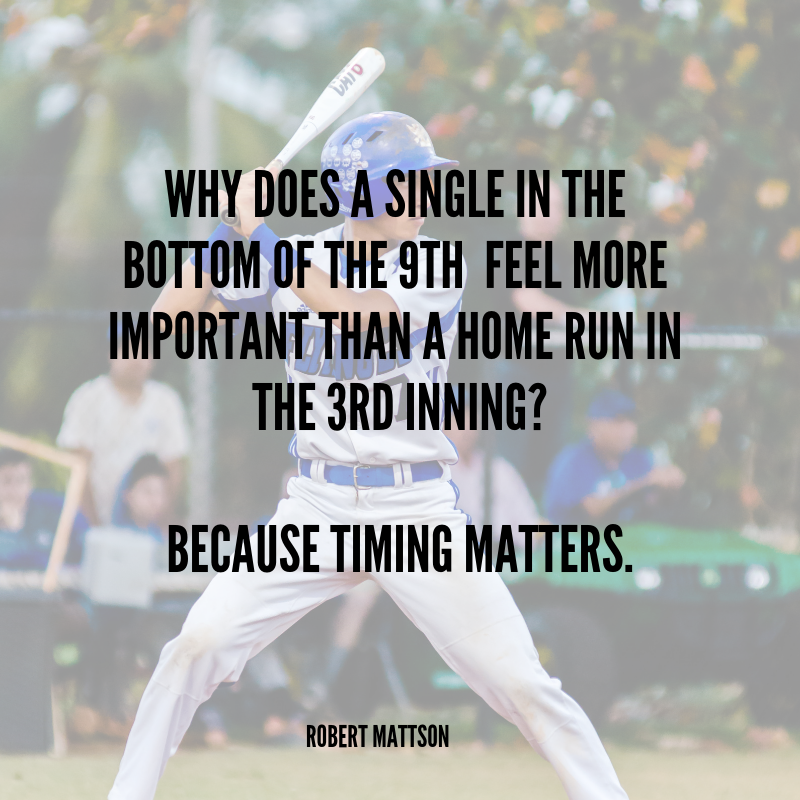
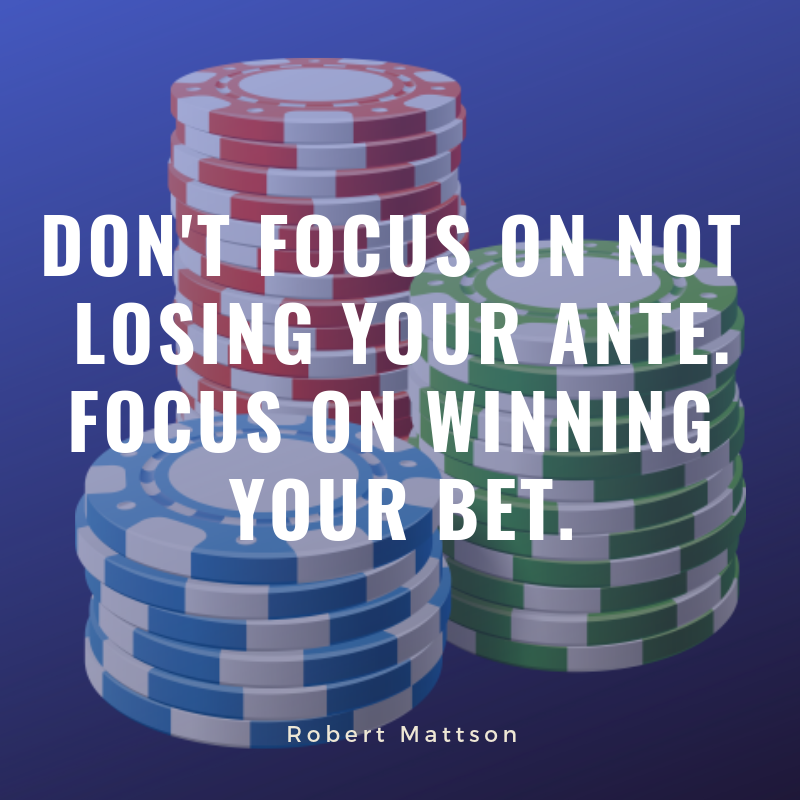
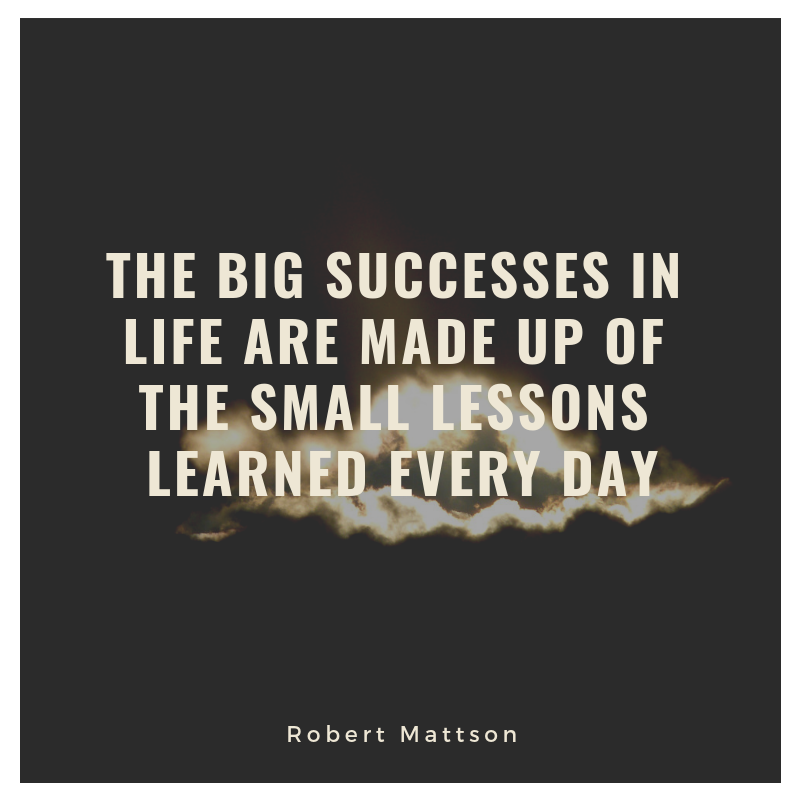
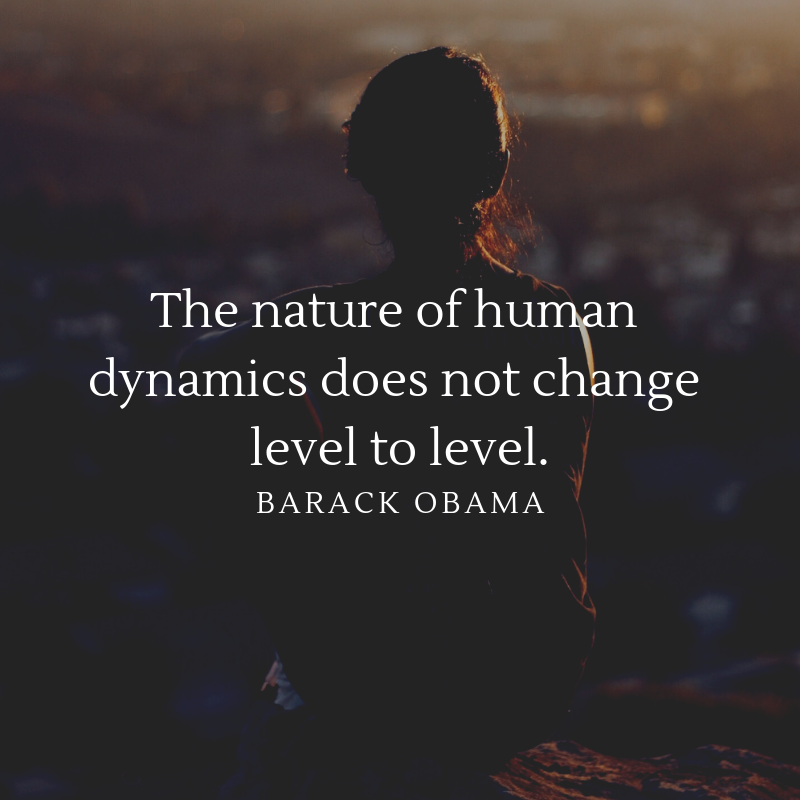

 RSS Feed
RSS Feed